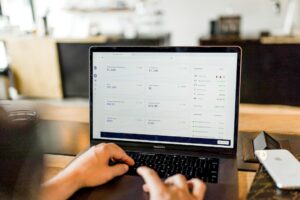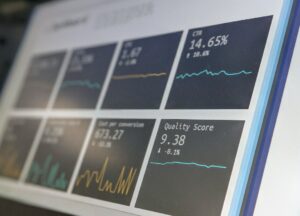The Importance of Choosing the Right Broker for Your Demo Forex Account
When venturing into the world of forex trading, one of the first steps is to open a demo forex account. A demo account allows traders to practice their trading strategies, test different platforms, and familiarize themselves with the forex market, all without risking real money. However, choosing the right broker for your demo forex account is crucial and can greatly impact your trading journey. In this article, we will explore the importance of selecting the right broker and the factors to consider when making this decision.
1. Platform and Tools: The forex trading platform is your gateway to the market. It is essential to choose a broker that offers a user-friendly and intuitive platform. The platform should provide real-time charts, technical analysis tools, news feeds, and a wide range of order types. Ensure that the platform is compatible with your devices, such as desktop, mobile, and tablet, allowing you to trade on the go.
2. Regulation and Security: The forex market is decentralized, and as a result, it is susceptible to fraudulent activities. It is crucial to choose a broker that is regulated by a reputable financial authority. Regulatory bodies ensure that brokers adhere to strict guidelines and provide a safe trading environment for their clients. Look for brokers regulated by authorities such as the Financial Conduct Authority (FCA) in the UK, the Australian Securities and Investments Commission (ASIC), or the Cyprus Securities and Exchange Commission (CySEC).
3. Customer Support: Forex trading operates 24 hours a day, five days a week. Therefore, having access to reliable customer support is vital. Look for brokers that offer multiple channels of communication, such as phone, email, and live chat. Test their response time and knowledge by asking a few questions before opening a demo account. Prompt and knowledgeable customer support can be crucial when you encounter technical issues or have trading-related queries.
4. Demo Account Features: The purpose of a demo account is to simulate real trading conditions. Therefore, it is essential to choose a broker that offers a demo account with features that closely resemble live trading. Look for brokers that provide real-time market data, competitive spreads, and the ability to implement your trading strategies without limitations. Some brokers also offer additional educational resources and webinars to enhance your trading knowledge.
5. Trading Costs and Fees: While trading on a demo account does not involve real money, it is important to consider the trading costs and fees associated with a live account. Take note of the spreads offered by the broker, as this is the primary way brokers make money. Additionally, consider other charges such as deposit fees, withdrawal fees, and inactivity fees. Although these fees may not impact your demo trading directly, they can significantly affect your profitability when trading with real money.
6. Account Types and Leverage: As a beginner trader, it is crucial to choose a broker that offers different account types to cater to your trading needs. Look for brokers that offer a micro or mini account, allowing you to trade smaller volumes and minimize risk. Additionally, consider the leverage options provided by the broker. While high leverage can amplify profits, it can also lead to significant losses if not used responsibly. Ensure that the broker offers suitable leverage options based on your risk tolerance and trading strategy.
7. Reputation and Reviews: Before selecting a broker for your demo forex account, do thorough research and read reviews from other traders. Pay attention to their experiences with the broker’s platform, customer support, and overall trading conditions. While individual reviews should not be the sole basis for your decision, they can provide valuable insights into the broker’s reputation.
In conclusion, choosing the right broker for your demo forex account is a crucial step in your trading journey. Consider factors such as platform and tools, regulation and security, customer support, demo account features, trading costs and fees, account types and leverage, as well as the broker’s reputation. By carefully evaluating these factors, you can ensure that you are practicing and learning in an environment that closely resembles live trading conditions, setting yourself up for success when you eventually transition to a live account.





